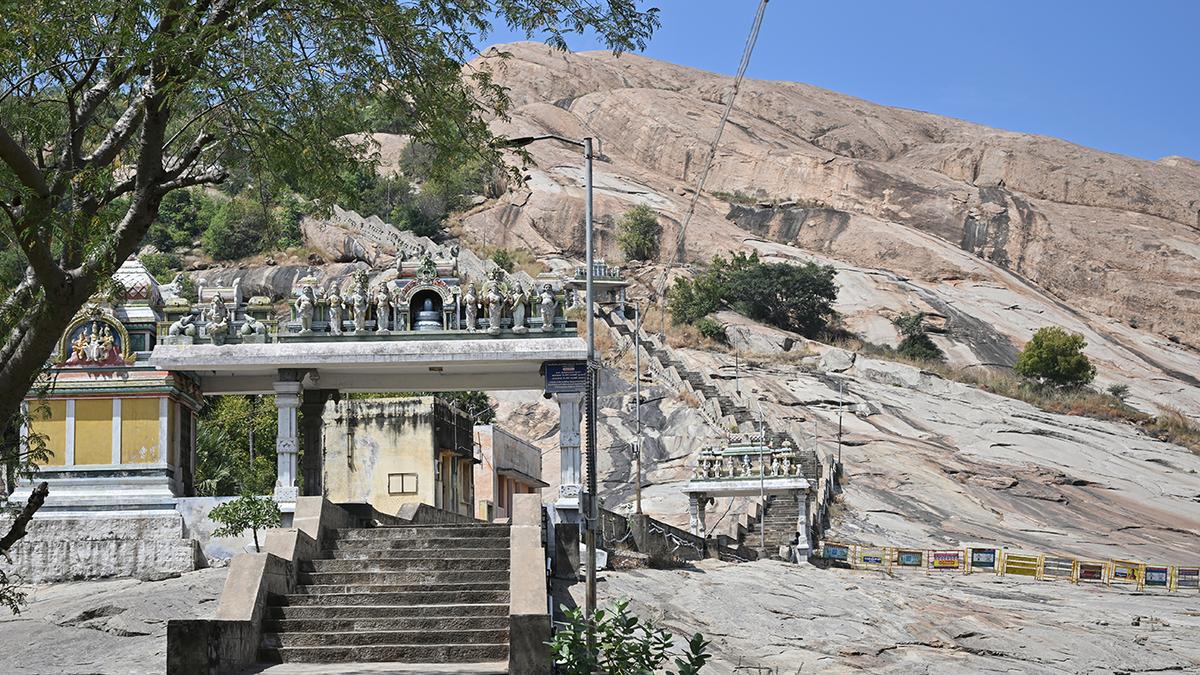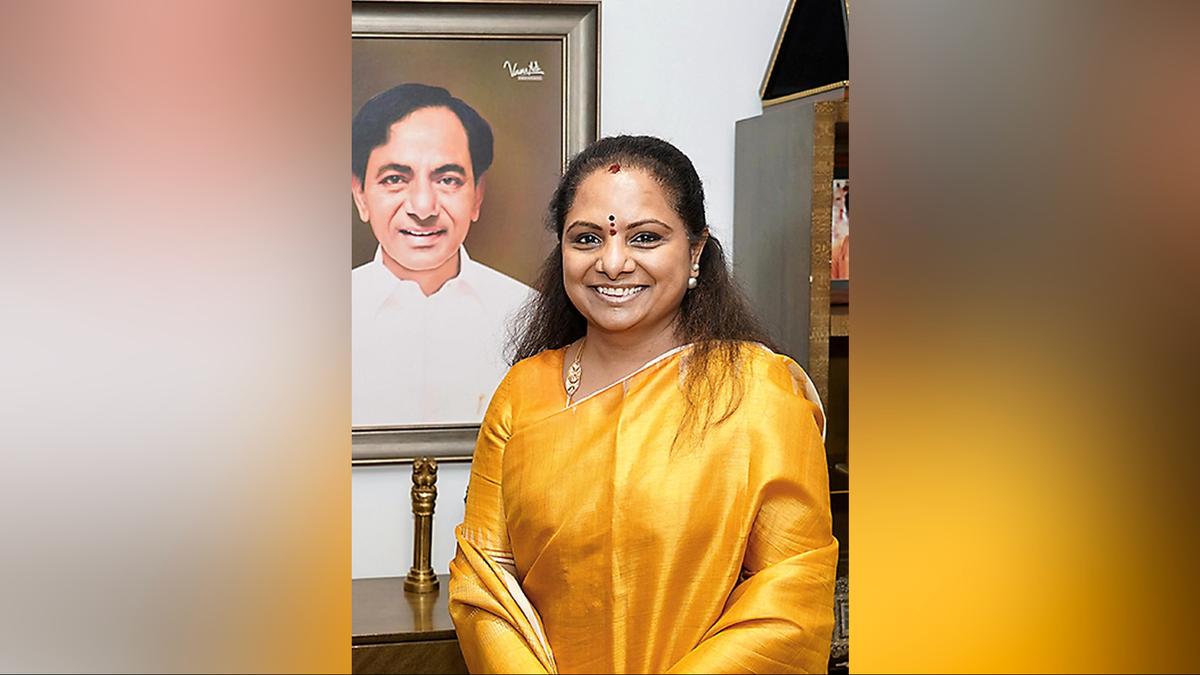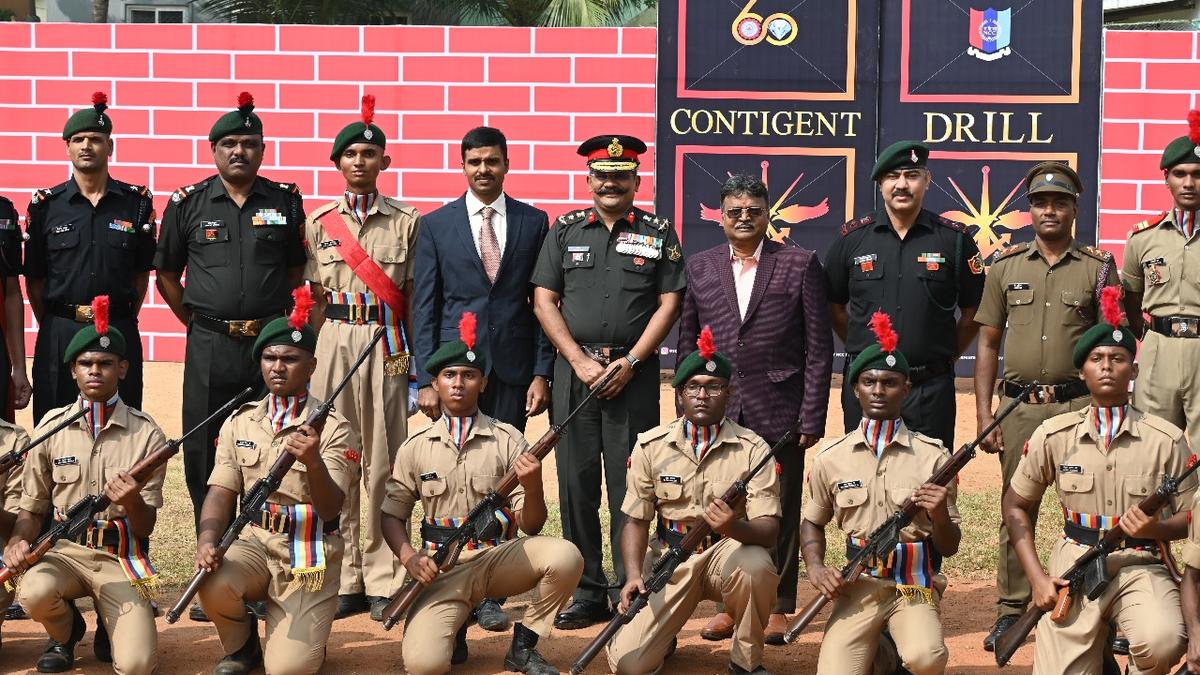
Justice R. Vijayakumar took into account two Gazette notifications, in 1908 and 1923, of the Archaeological Survey of India. File
| Photo Credit: The Hindu
Justice R. Vijayakumar of the Madurai Bench of Madras High Court, the tie-breaker judge in the Tirupparankundram hillock case in which a Division Bench had delivered a split verdict, on Friday concurred with the view of Justice S. Srimathy, one of the two members of the Division Bench, that animal sacrifice, cooking, carrying, or serving non-vegetarian food cannot be permitted on the hills for now. He held that the restrictions on animal slaughter and non-vegetarian food must continue till a competent civil court decides the matter. With regard to the name of the hillock, the judge held that it should be called ‘Tirupparankundram’.
Justice J. Nisha Banu, the other member of the Division Bench, had delivered a different verdict, warranting the nomination of the third judge.
Justice Srimathy had relied upon the 1920 civil court judgment and decree wherein the name of the hillock was mentioned as Tirupparankundram. Revenue records too reflect the same.
Justice Vijayakumar took into account two Gazette notifications issued in 1908 and 1923 by the Archaeological Survey of India and observed that they clearly indicated the presence of Sikandar Badusha Dargah and the name of the hillock as Tirupparankundram. There was no reference about Tirupparankundram as “Sikandar Malai”.
On animal sacrifice, he held that when one side asserts that the practice exists from time immemorial and the other side denies it, the party which asserts existence of such a customary practice has to approach a competent civil court to establish the same.
Statutory bar
The notifications issued by the ASI declare 172.2 acres of land, covering almost the entire hillock, as a protected monument. As per Rule 8(g) of Ancient Monuments and Archaeological Sites and Remains Rules 1959, bringing any animal for any purpose other than maintenance of monuments is prohibited. As per Rule 8(c), cooking or consuming of food is also prohibited except where it is permitted specifically. Therefore, as of today, there is a statutory bar against the traditional practice of animal sacrifice on the hillock, the judge concluded.
As per the 1920 civil court judgment, the traditional steps of the hillock leading to Nellithoppu area belong to the temple Devasthanam, and the Subramaniaswamy Temple and the Kasi Vishwanathar Temple are connected to each other. Hence, animal sacrifice, if permitted, clearly impinges upon the religious practice of one community, the judge observed.
With regard to space for conduct of prayers/gathering at Nellithoppu, Justice Vijayakumar observed that Mohammedans have been granted declaration of title to an extent of 33 cents in the area.
In such circumstances, if a large number of people are permitted to offer prayers, the crowd is certainly likely to occupy the pathway leading to the Kasi Vishwanathar Temple and the traditional steps leading up to the Nellithoppu area, which has been declared to belong to the temple Devasthanam. However, overcrowding cannot be a ground to deny the right to offer prayers, provided it does not obstruct the pathway for devotees and the traditional steps leading up to the Nellithoppu area, the judge said.
In the Nellithoppu area, animal sacrifice, cooking, carrying, or serving of non-vegetarian food cannot be permitted till a decision is rendered by a competent civil court with regard to the customary practice of animal sacrifice on the hillock. In fact, the temple Devasthanam has been declared to be the absolute owner of the traditional footsteps leading up to Nellithoppu area. The Mohammedans have only the right of usage over the pathway. In such circumstances, they cannot use the pathway for any other purpose other than to reach the Nellithoppu area, the judge added.
The Mohammedans could be permitted to offer prayers in Nellithoppu area during Ramzan and Bakrid festival days alone, subject to conditions and that they will not defile or spoil the traditional footsteps, he said.
Justice Vijayakumar, on this aspect, concurred with Justice Banu, who had dismissed the petition that had sought a direction to the authorities not to permit the conduct of prayers at Nellithoppu. She had held that the rights of the parties have already crystallised.
Published – October 11, 2025 01:42 am IST



